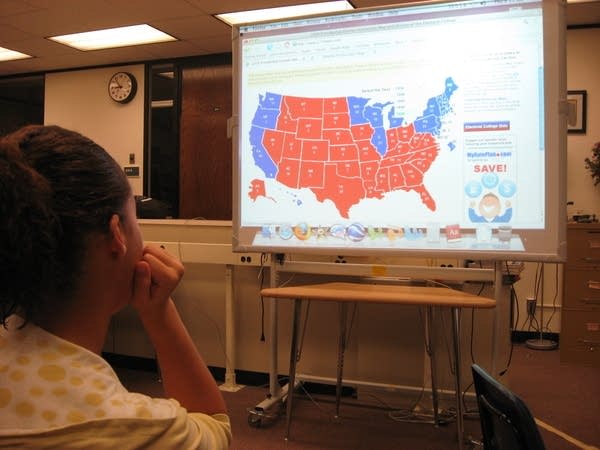Intelligence Squared debate: Gerrymandering is destroying the political center

This week's Intelligence Squared debate focuses on our politically divided country and the electoral districts that literally divide us.
Gerrymandering is the process of manipulating an electoral constituency to favor one political party or social class over another.
The motion in this debate is: "Gerrymandering is destroying the political center."
For: Caroline Fredrickson of American Constitution Society and David Daley, author of "Ratf**ked: The Story Behind the Secret Plan to Steal America's Democracy."
Create a More Connected Minnesota
MPR News is your trusted resource for the news you need. With your support, MPR News brings accessible, courageous journalism and authentic conversation to everyone - free of paywalls and barriers. Your gift makes a difference.
Against: Nolan McCarty of Princeton University and author of "Political Bubbles" and Chris Jankowski, former exec. dir. of REDMAP Project.
In round one Caroline Fredrickson said that gerrymandering is nothing new and is still used in "insidious" ways to this day, with technology making it even worse.
"Parties have learned that they can gain many votes by altering the mix of who votes, rather than assuming the median positions of the likely electorate." she said. "And they speak more directly to partisans and donors, the extremes really, through the micro-targeting that is available to them."
The system in place now benefit the incumbent, or one political party only — and the primary election becomes the only thing that matters with districts constructed to be non-competitive, Fredrickson argued.
Up next, Nolan McCarty opened his arguments by defining polarization as "the disappearance of modern views from politics and increased likelihood of extreme lands."
"Since the Dakotas were split in the 1890s to give the Republicans four senators instead of two the senate has not been gerrymandered yet the data shows it's just as polarized as the House of Representatives," said McCarty. "... If you look at state legislatures lower and upper chambers are equally polarized. Lower chambers are easier to gerrymander than upper chambers, why are they the same if this is what's going on?"
Simulating different types of gerrymandering and comparing them shows very little effect on levels of polarization, McCarty said, asserting that the data available does not support the debate's motion.
To listen to the entire debate, click the play button above.